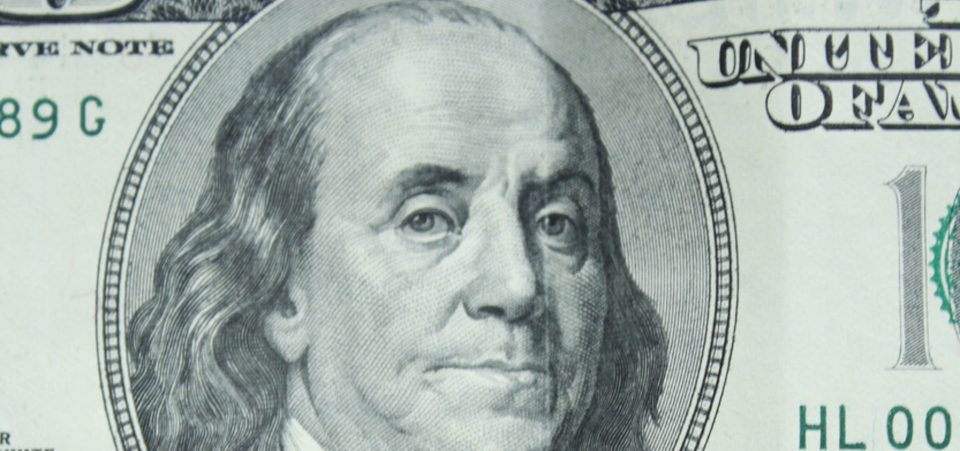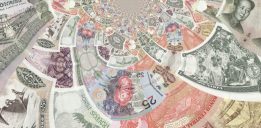USDCNY: Strong Dollar and Weak Yuan Hurt U.S. Exporters like Boeing Co
The U.S. dollar (USD) is trading at historically high levels. This hurts exports by American industrial companies like Boeing Co (NYSE:BA). It has also scared China, the world’s second-largest economy. The People’s Bank of China (PBOC) has taken drastic steps to protect the yuan (CNY), its currency, and thus protect the USDCNY exchange. But China’s efforts have not paid off.
Even companies like The Coca-Cola Co (NYSE:KO), which draw more than half of their revenues from outside of the U.S., could suffer. Then there are the large industrial conglomerates like United Technologies Corporation (NYSE:UTX), as well as Boeing. They have already warned that the dollar’s bullish course, especially as far as the USDCNY goes, could hurt their performance in 2017.
Boeing, the country’s biggest exporter, is expecting an exacerbated commercial rivalry with Airbus, after having long benefited from the strength of the euro against the dollar. This is a potential downside of the Trump effect. It relates to China and the yuan, because so many of Boeing’s sales and competition occur in China.
China is the world’s largest aerospace market. Over the next 20 years, China could buy a trillion dollars’ worth of commercial planes. (Source: “Boeing Says China To Become First Trillion-dollar Market,” AINonline, September 13, 2016.)
The lower Chinese yuan make it more expensive to buy Boeing planes. Airbus, which sells in euros, becomes more competitive. Until recently, the dollar had not been an obstacle, but it could become a major one, given its widening gap with the CNY.
Strong U.S. Dollar Could Become Major Problem
The U.S. “Greenback” may not be growing as fast as other currencies, like the ruble, for example, but it has gained such power that even President-elect Donald Trump fears it. Meanwhile, the PBOC prompted a sharp devaluation in the USDCNY on January 2, setting the yuan at its weakest level in two weeks. (Source: “USD/CNY: Yuan kicks-off 2017 on the back foot,” FXStreet, January 3, 2017.)
While the U.S. dollar has reigned supreme over all global currencies in recent months, even Donald Trump has expressed caution. During his campaign, Trump noted that a strong dollar “sounds better than it really is.” (Source: “Donald Trump and the Dangerous Allure of a Strong Dollar,” Financial Times, November 25, 2016.)
Ironically, despite his “America First” appeal, Trump, who takes office in less than three weeks, knows that a strong dollar can hurt American companies. A rise in the dollar mechanically means an increase in the price of exported goods. And this involves converting sales in other currencies to unfavorable exchange rates.
It’s true that the Greenback has been on an upward slope for four years now. But the prospect of major infrastructure projects that Trump has promised—and the rise in Federal Reserve (Fed) interest rates—may have over-strengthened the dollar. Just before Christmas, the dollar hit its highest level in 14 years against six other major currencies.
The Fed itself was concerned about the impact of the strong dollar on a wide range of sectors, from agriculture to the steel industry. The high dollar also hurts Trump’s chances of preventing more jobs moving abroad, to China and Mexico specifically. (Source: Ibid.)
Weak Yuan Makes Outsourcing Even More Attractive
Indeed, the weakness of the yuan or the Mexican peso against the Greenback makes production in these countries even more attractive. The main advantage, and it’s no minor one, is that the U.S will be able to import raw materials at better prices.
But, if market forces pull more manufacturing jobs away from the U.S., the benefits are hollow. Meanwhile, China is concerned because the lower CNY encourages capital flight.
China will further tighten the screws on the yuan by restricting the ongoing capital flight. Individuals wishing to convert their yuan into foreign currencies will now have to provide more detailed information to their bank. Each year, individuals in China can convert a maximum of the yuan’s equivalent of $50,000.
China will pay more attention to combat illegal transactions, money laundering and clandestine banks through more random checks and tougher sanctions. But more controls are in store to curb a huge hemorrhaging of capital outside China. About $1.0 trillion fled China in 2015. (Source: “China’s Foreign Reserves Drop Most in 10 Months as Yuan Slumps,” Bloomberg, December 7, 2016.)
The weakness of the CNY, the current state of China’s economy, and the recent U.S. interest rate hike (making dollar-denominated assets more attractive) combine to encourage savers to invest their money in other currencies. Meanwhile, this depreciation frightens savers and encourages them even more to transfer their capital abroad.






